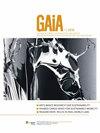Public support for worktime reductions in Switzerland in the context of a transition to a post-growth society
IF 1.9
4区 社会学
Q4 ENVIRONMENTAL SCIENCES
引用次数: 0
Abstract
Work time reductions (WTRs) may contribute to a transition to a post-growth society. We analysed Swiss stakeholders’ perceptions of the effects of WTRs and their support for measures to implement them. It is assumed that public support will play a significant role in putting WTRs into practice.There is some scientific evidence that work time reductions (WTRs) have beneficial ecological, social, and economic effects that could contribute to a transition to a post-growth society. However, little research has been conducted on whether the occurrence of such desired effects is acknowledged: Do they form part of the public debate and is there any public support for WTRs? We conducted a two-round survey among Swiss stakeholder groups (N = 51/28) to identify what effects they believe WTRs have, and what measures to implement WTRs they would be most likely to support. Stakeholders perceived WTRs to have several beneficial social and economic effects, including effects that are relevant for a transition to a post-growth society. However, they did not assume that ecological effects occur. Measures voluntarily implemented on an organisational level by businesses were more popular than those implemented on a national policy or social partnership level. Certain incremental measures and/or those that are merely conducive to WTRs were uncontested. Other more direct and extensive measures were predominantly supported, but not uncontested.在向后增长社会过渡的背景下,瑞士公众对减少工作时间的支持
减少工作时间(WTRs)可能有助于向后成长社会过渡。我们分析了瑞士利益相关者对wtr影响的看法以及他们对实施措施的支持。人们认为,公众的支持将在实施wtr方面发挥重要作用。有一些科学证据表明,减少工作时间对生态、社会和经济都有有益的影响,有助于向后增长社会过渡。然而,关于这种预期效果的发生是否得到承认的研究很少:它们是否构成了公众辩论的一部分,公众是否支持wtr ?我们在瑞士利益相关者群体(N = 51/28)中进行了两轮调查,以确定他们认为wtr有什么影响,以及他们最有可能支持哪些实施wtr的措施。利益相关者认为,wtr具有若干有益的社会和经济影响,包括与向后增长社会过渡相关的影响。然而,他们并没有假设生态效应会发生。企业在组织层面自愿实施的措施比在国家政策或社会伙伴关系层面实施的措施更受欢迎。某些增量措施和/或仅有利于世贸组织贸易协定的措施没有受到质疑。其他更直接和更广泛的措施多数得到支持,但并非没有异议。
本文章由计算机程序翻译,如有差异,请以英文原文为准。
求助全文
约1分钟内获得全文
求助全文
来源期刊

Gaia-Ecological Perspectives for Science and Society
ENVIRONMENTAL SCIENCES-
CiteScore
2.30
自引率
18.80%
发文量
43
审稿时长
>12 weeks
期刊介绍:
GAIA is a peer-reviewed inter- and transdisciplinary journal for scientists and other interested parties concerned with the causes and analyses of environmental and sustainability problems and their solutions.
Environmental problems cannot be solved by one academic discipline. The complex natures of these problems require cooperation across disciplinary boundaries. Since 1991, GAIA has offered a well-balanced and practice-oriented forum for transdisciplinary research. GAIA offers first-hand information on state of the art environmental research and on current solutions to environmental problems. Well-known editors, advisors, and authors work to ensure the high quality of the contributions found in GAIA and a unique transdisciplinary dialogue – in a comprehensible style.
 求助内容:
求助内容: 应助结果提醒方式:
应助结果提醒方式:


